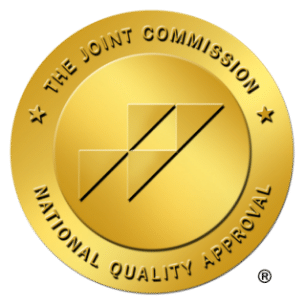Learning to Embrace All Your Parts
Lydia Kraszewski, LPC
Let’s Get Started!
Think of it like this: you’re at the grocery store deciding what you want to eat for dinner. You were planning on getting the ingredients to make a salad because you were craving one all day. You walk by the produce section and see some chocolate-covered pretzels on a shelf off to your left; all of a sudden you get a craving for sweets. Chocolate chip pancakes for dinner sound really good, you think to yourself. There is now one part of you that wants to go to the baking aisle to purchase some pancake mix, while another part of you still wants to pick up the ingredients for a salad. Both of these parts are now existing at once, and both want something completely different. Now ask yourself, what is the dialogue in my head sounding like right now? Is there caution towards making the wrong decision? Is there judgement if you do? Or maybe it sounds something like, It doesn’t matter! Eat whatever you want.
Now, you might be wondering- What does deciding between a salad and pancakes have to do with therapy?
My point is that if you were to stop and listen to the ongoing dialogue in your mind, whether it’s in regard to dinner, how you see yourself, making a major life decision, or basically anything you face throughout the day, you will likely recognize various & sometimes opposing narratives that guide your choices, behaviors and concept of self.
Now we’ll unpack.
What is IFS & how is it Used in Counseling?
Internal Family Systems was created by Dr. Richard Schwartz, Ph.D., a clinician who originally worked in family systems therapy. In short, Dr. Schwartz developed this theory as a result of hearing clients speak about their “parts” when describing their inner world, i.e., the various subgroups of “self”. Although this was not technically new information (we’ll get into Freud’s ego, ID & superego at another time), it was a completely different way of understanding the RELATIONSHIPS within our internal system.
Dr. Schwartz created a theory surrounding the idea that we each hold multiple “parts” (think different minds within one brain) which hold distinct characteristics and are intended to benefit us in one way or another. Here’s where it gets tricky. Through subjective & adverse life experiences, it is likely our internal systems will become restructured. This means our parts are prone to taking on exaggerated roles as a means of keeping us safe (even if the resulting behavior may seem maladaptive or counterproductive).
Let me give you an example: Meet Sally. Sally was the first child in her external family system, so this meant getting perfect grades, taking care of her siblings & feeling as though she had to do everything right. As a young adult, Sally describes feelings of worthlessness when she makes a mistake at work, and notices people-pleasing tendencies with her close friends. Dr. Schwartz might theorize that Sally’s sense of worthlessness and people-pleasing tendencies come from the part of her which doesn’t want to let others down- potentially, her “high achievement” part. Although this part is causing Sally distress in present-day, its role has formed around the value of being a leader. The “high achievement” part is intending to help Sally meet her goals & have cohesive relationships; the problem is that this part has learned to drive Sally to succeed through self-criticism and self-blame.
Okay, so what now?
The Various Roles of Parts
Managers (Protective)
According to Dr. Schwartz, our “manager” parts have taken on the role of protecting us in some way, shape or form. Managers work to keep individuals safe, and a lot of the time this can look (similar to Sally) like perfectionism, people-pleasing, challenges in setting boundaries, putting other people’s needs ahead of one’s own needs, seeking control, using success as a measuring stick for self-esteem, and using logic as a defense for being emotionally vulnerable.
Managers come from a place of not wanting to get hurt, not wanting to appear defenseless or weak, and wanting to sustain functionality; all of which are forms of safety.
Exiles (Wounded)
Have you ever gotten a speeding ticket? How did you feel afterwards- angry, shameful, embarrassed? Now, was there ever a time in your childhood you can remember feeling similarly? If the answer was “yes” (and you can fill in speeding ticket with really anything that evokes a strong emotion), this means an exile part may have been activated. Dr. Schwartz described exile parts as carrying emotions that were felt during childhood and have been locked away in adulthood out of pain, sadness, humiliation, etc. Think back to how we just talked about manager parts. The role of manager parts is to keep the exiles at bay through the defense mechanisms listed in the previous paragraph.
Firefighters (Protective)
Can you guess what firefighters do? They literally put out the hypothetical fires that exile parts hold, which are sometimes ignited if a manager part is not able to effectively control it. If an emotion, sensation or memory is too much, firefighters jump in to make the feeling go away as quickly as possible. Firefighters are likely impulsive and will take drastic measures to protect. Common examples of the firefighter in action include self-harming or avoidance behaviors such as excessive use of alcohol and drug use, gambling, sex, food, reckless spending, and even doomscrolling.
“Core- Self”
Okay, so now we have all this insight into our various parts and how they may showcase. What do we do with that?
The goal of effective IFS treatment is differentiating our parts from “self”. Dr. Schwartz believed that we all have a regenerating and healthy “self” which, when discovered, can release our unhelpful parts with a sense of compassion, clarity, confidence, curiosity, calmness, courage & connectedness (the 7 C’s). Through IFS, clinicians and clients can work together to challenge harmful parts of self by replacing judgement with acceptance, self-harm with self-love, and cynicism with optimism.
Who Can Draw Value through the Implementation of IFS?
What does IFS treat? To answer your question, here’s a list!
- Post-Traumatic Stress Disorder (PTSD)
- Depression
- Anxiety Disorders
- Eating Disorders
- Substance Abuse Disorders
- Relational & Attachment Problems
- Obsessive Compulsive Disorder
A Clinician’s POV
If you have read this article and are asking yourself if IFS can work for you, I challenge you to continue exploring. An informed decision can be extremely helpful in finding the right therapist, as well as creating a foundation of knowledge for yourself. IFS was formulated around the intersectionality of our experiences and unique backgrounds, meaning our personal history is what shapes our parts today. Through IFS, we can begin to not only unravel our complex makeup but ask ourselves “why”. As a clinician, I have found IFS helpful not only in my clinical skillset, but in the work I have done with my own therapist. I believe that our parts are what make us human, and there is nothing more rewarding than finding compassion for everything that makes us….us.
Resources
Schwartz, R. C., & Morissette, A. (2021). No bad parts: healing trauma & restoring wholeness with the internal family systems model.
What is Internal Family Systems? | IFS Institute. (2025, March 31). https://ifs-institute.com/



